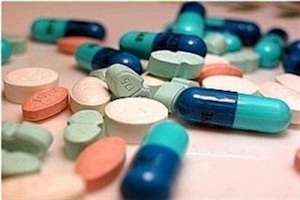Various pills. Credit: Wikipedia
Soaring prices for everything from cancer treatments to hepatitis C pills that cost more than $100,000 have sparked outcry in the United States in recent years, but calls for change have gone largely unheeded.
Now, a growing movement of politicians, patients and doctors is proposing to overhaul the US system, which has no regulations in place to keep drug prices low, by better matching the value of a drug to its actual price tag.
"We need the US system to change in order to see a global change," said Doctors Without Borders' US legal policy adviser Judit Rius, who blamed a "systematic failure of the innovation system" for rising costs of vaccines and drugs worldwide.
While the problem has been known for years, anger surged this week when video emerged of a young CEO, flippantly explaining why he raised the cost of a decades-old pill for a parasitic infection from $13.50 to $750 overnight.
The clip went viral.
News headlines proclaimed Turing Pharmaceuticals CEO Martin Shkreli the "most hated man in America," and he soon vowed to roll back the price, but did not say by how much.
Presidential candidate Hillary Clinton seized the moment Tuesday to promise to tackle what she called "price-gouging" by the pharmaceutical industry, in part by regulating how much revenue drug companies spend on research and development.
The mere news that she was ready to discuss the topic had sent biotech stocks sliding Monday.
Her rival for the Democratic nomination, Senator Bernie Sanders, also has touted a plan which includes allowing Americans to import cheaper drugs from other countries.
Democratic Congressman Elijah Cummings said on local television in Baltimore this week that what drug makers are doing is "criminal."
"It's all about greed," added Cummings, the ranking member of the House Committee on Oversight and Government Reform.
Cummings said he has spoken to Attorney General Loretta Lynch about whether there should be laws in place against such price hikes.
High costs
Ninety percent of medicines in use today are cheap generics, but even those are not immune from high prices, said Leigh Briscoe-Dwyer, chief pharmacy officer at the North Shore-LIJ Health System in New York.
"All sectors of the healthcare industry have been dealing with significant increases in generic drug costs almost routinely for the past two years," she said.
As justification for rising prices, pharmaceutical companies often cite the high cost of developing a new drug—about $2.6 billion, according to the Tufts Center for the Study of Drug Development.
John Castellani, president of the Pharmaceutical Research and Manufacturers of America, acknowledged that drug prices are going up, in line with health care costs on the whole.
Any plan to regulate prescription drug prices "would restrict patients' access to medicines, result in fewer new treatments for patients," cost jobs and "could end our nation's standing as the world leader in biomedical innovation," he warned.
The US system leaves drug makers in control, whereas other nations, particularly in Europe, bargain with pharmaceutical companies to get costs down and have the power to refuse to pay for drugs that are deemed too expensive, experts say.
In the United States, health insurers often don't have that option, according to Steven Pearson, president of the Institute for Clinical and Economic Review.
"It is not like they can walk away and say, 'We won't cover it,'" he told AFP.
"The manufacturers have much more leeway setting their price. And certainly they have much more leeway to set prices higher in the United States than they do in other countries."
Common drugs
Finding a solution will not be easy, and experts are at odds over many of the details.
But what is certain is that the issue affects a wide portion of the public.
About half of all Americans, and 90 percent of seniors, take prescription drugs.
Three quarters of the US public think the medications cost too much, according to the Center for American Progress, which has urged greater transparency by drug companies and reforms to ensure that costs are better matched to the benefits the drugs provide.
The average price of new cancer drugs in the United States is now more than $120,000 per year, but the average US annual income is $52,000, according to a July editorial in the journal Mayo Clinic Proceedings.
The price of new cancer drugs has risen between five- and 10-fold over the last 15 years, making it harder than ever for patients to afford treatments in an era of new promise for immunotherapy and targeted cancer drugs that may improve the chances of survival.
Even those who have insurance coverage often end up paying extra money for their medication, and some have to go without, according to lead author Ayalew Tefferi, a hematologist at Mayo Clinic.
"The out-of-pocket expenses could be as high as $25,000 to $30,000 more than half the average household income and possibly more than the median take-home pay for a year," wrote Tefferi.
"Because of costs, about 10 to 20 percent of patients with cancer do not take the prescribed treatment or compromise it."
Other drugs that have stirred controversy include new hepatitis C pills, which cost about $1,000 per pill or up to $150,000 for a full treatment, and newly approved anti-cholesterol drugs known as PCSK9 inhibitors, which cost over $14,000 per year.
Journal information: Mayo Clinic Proceedings
© 2015 AFP




















